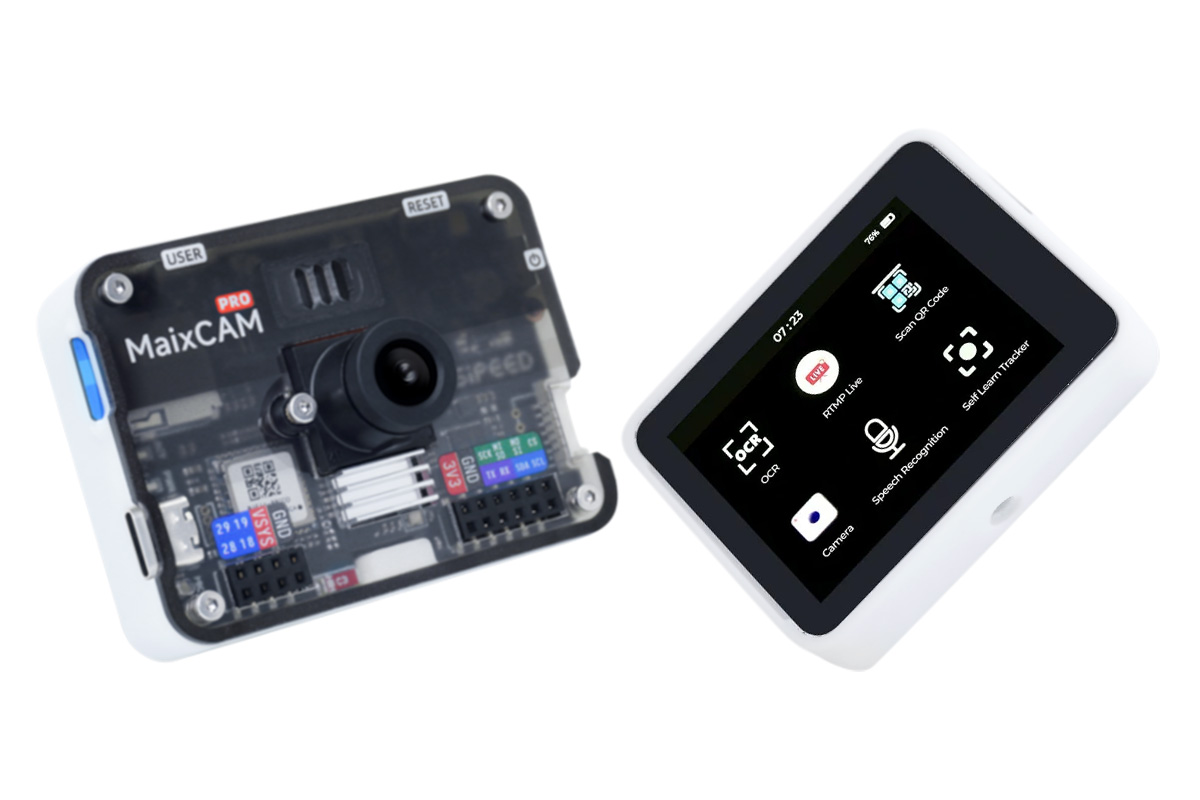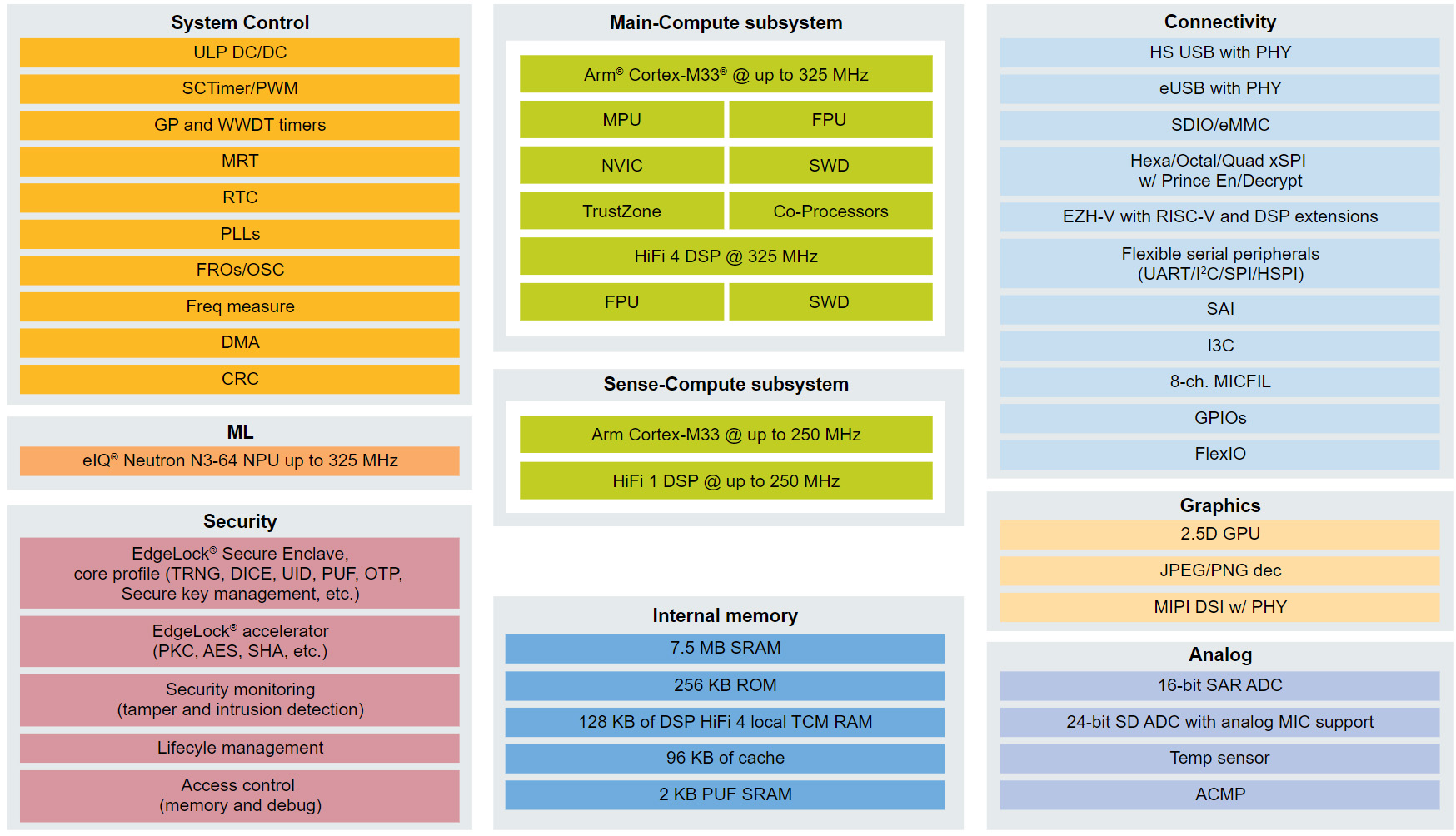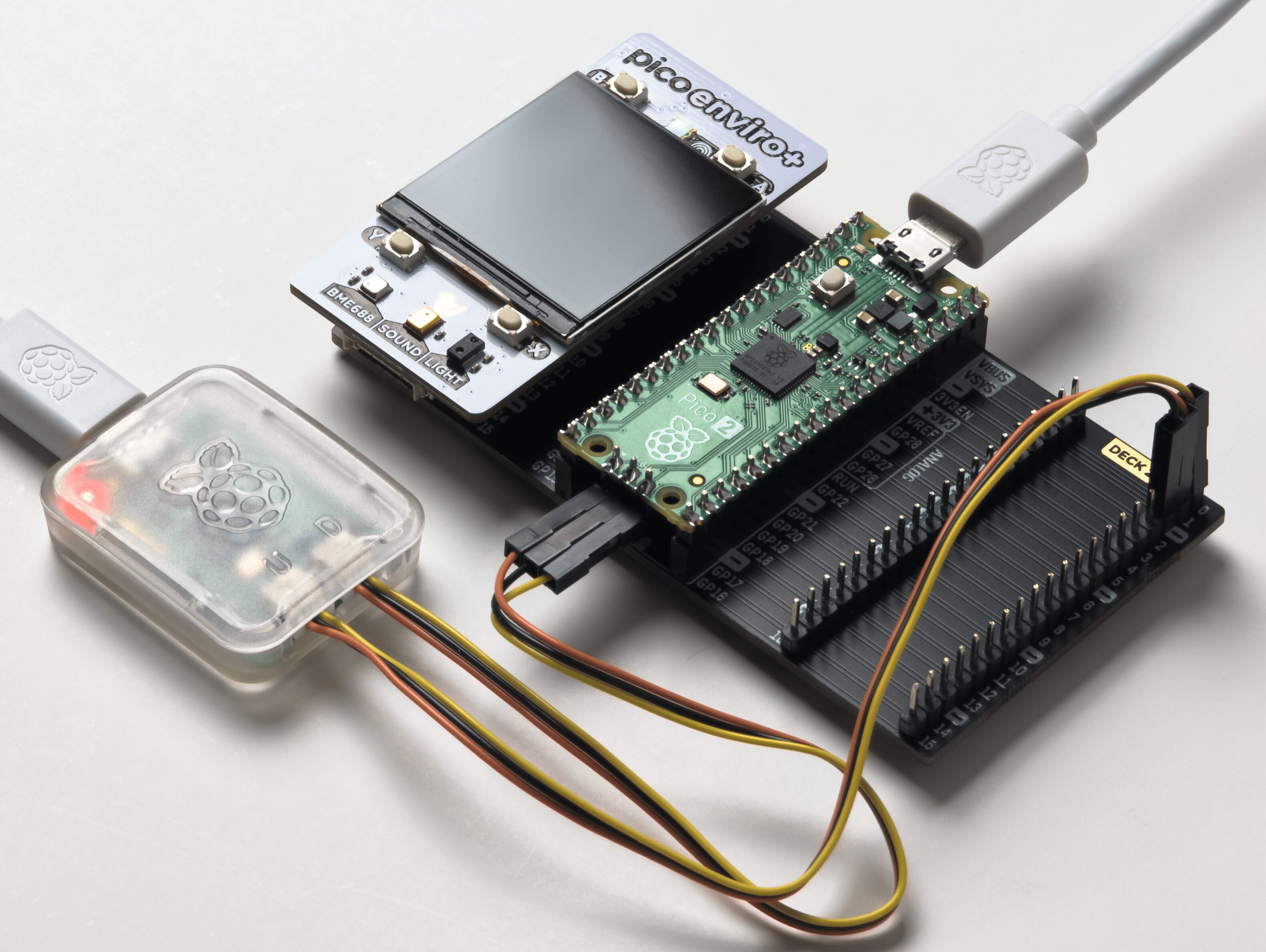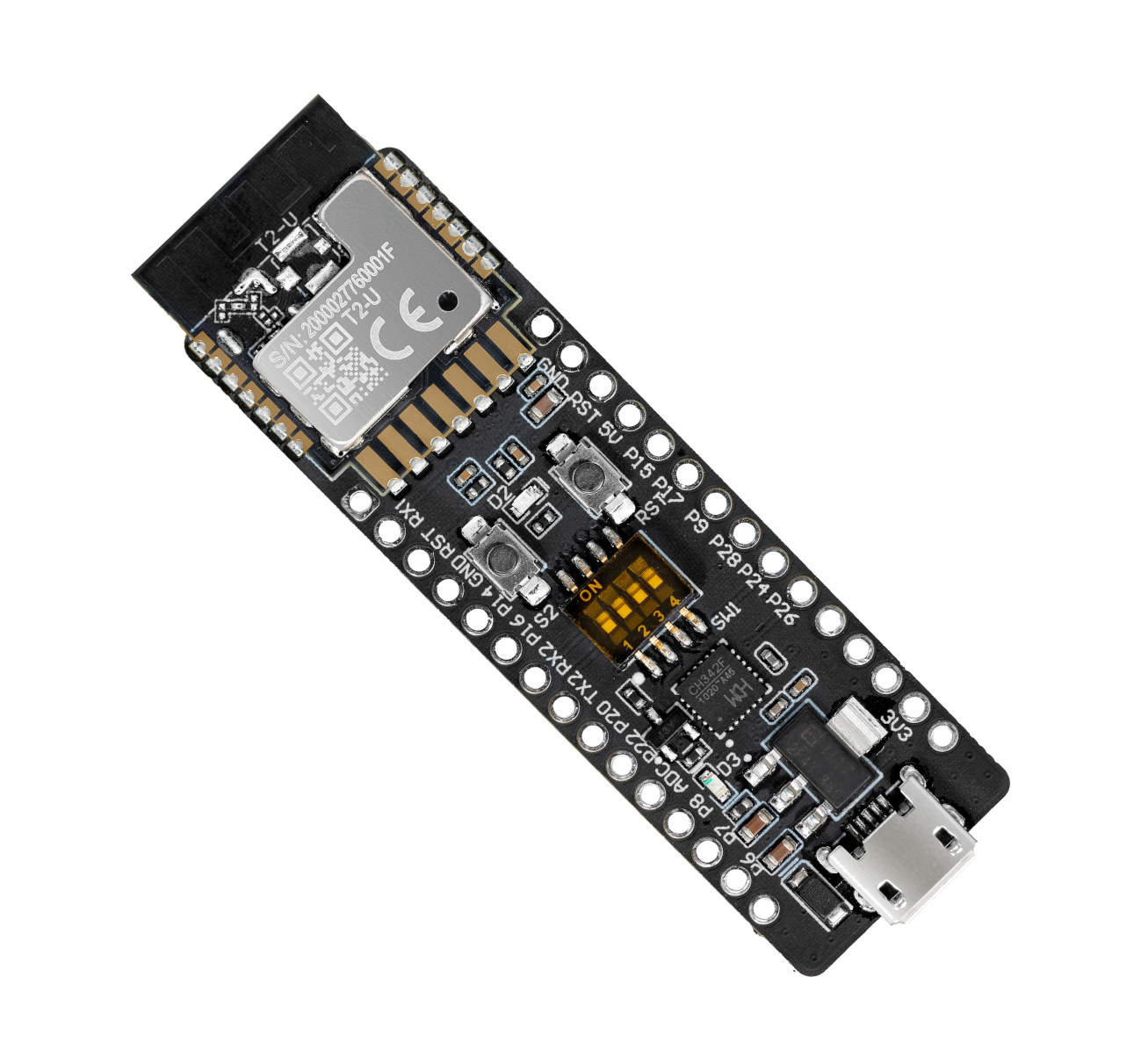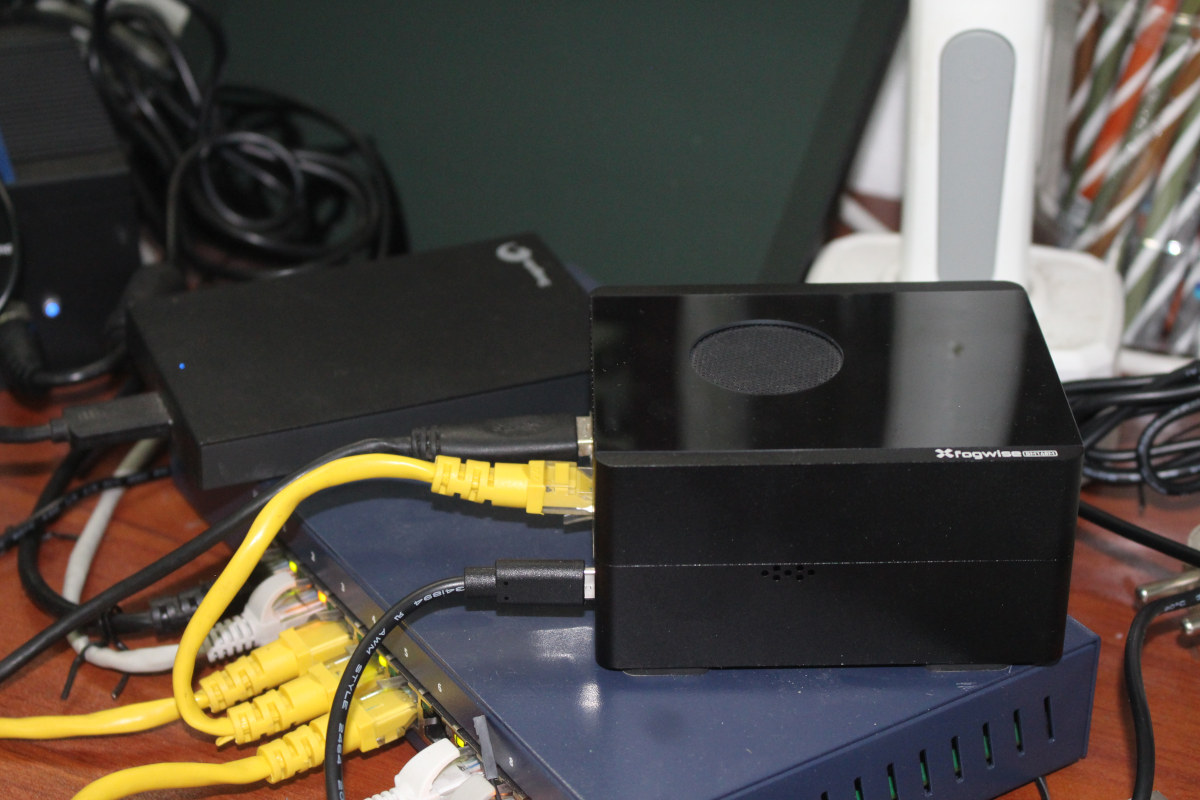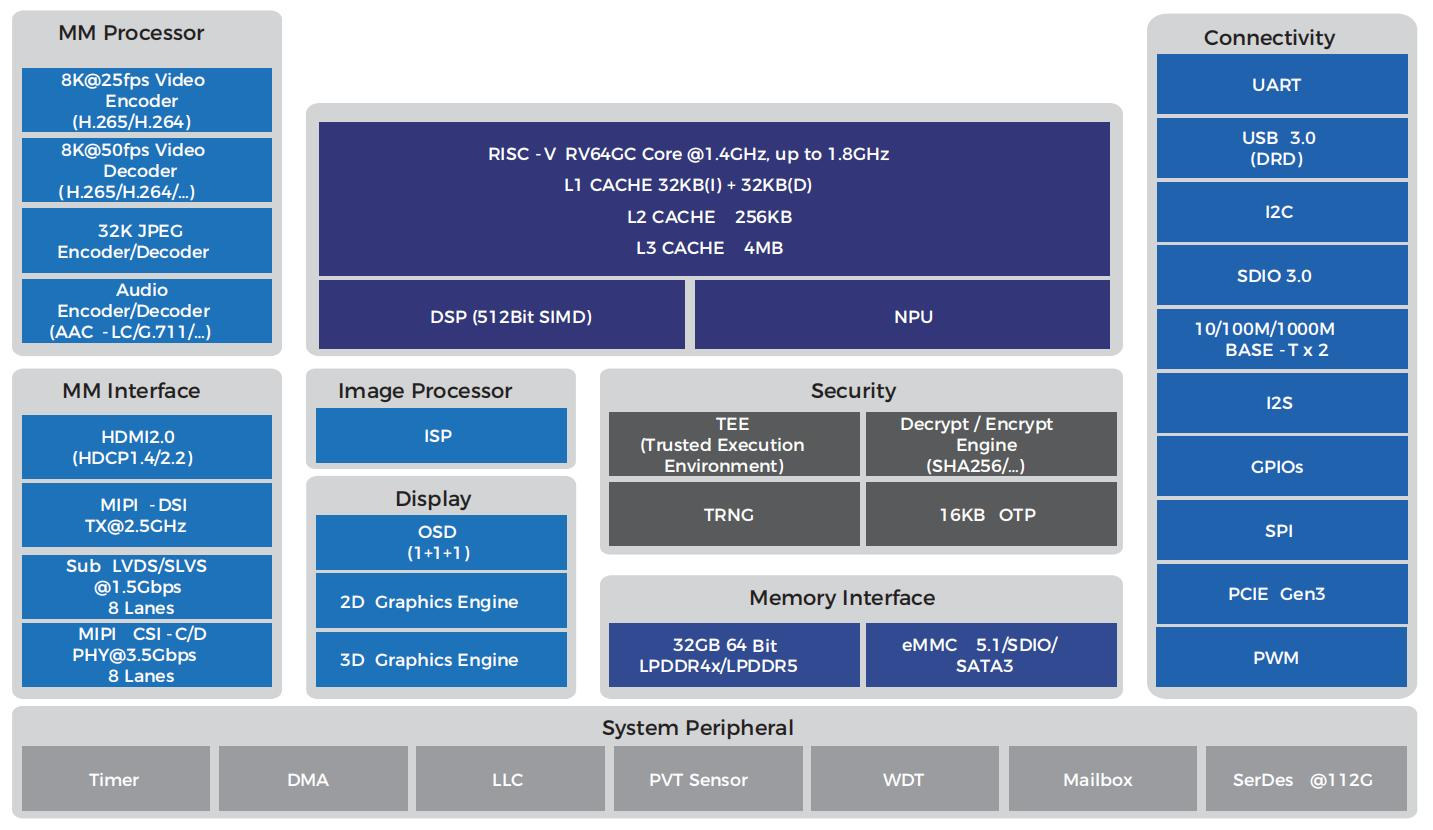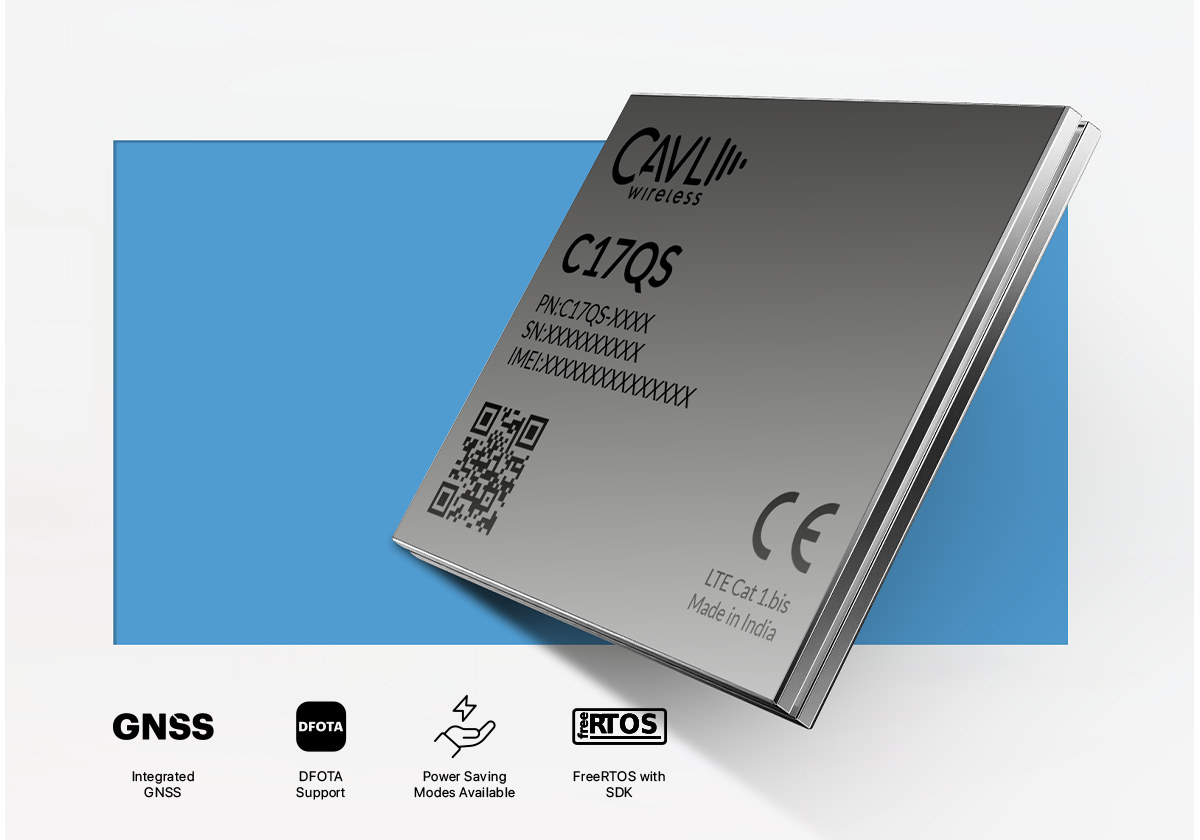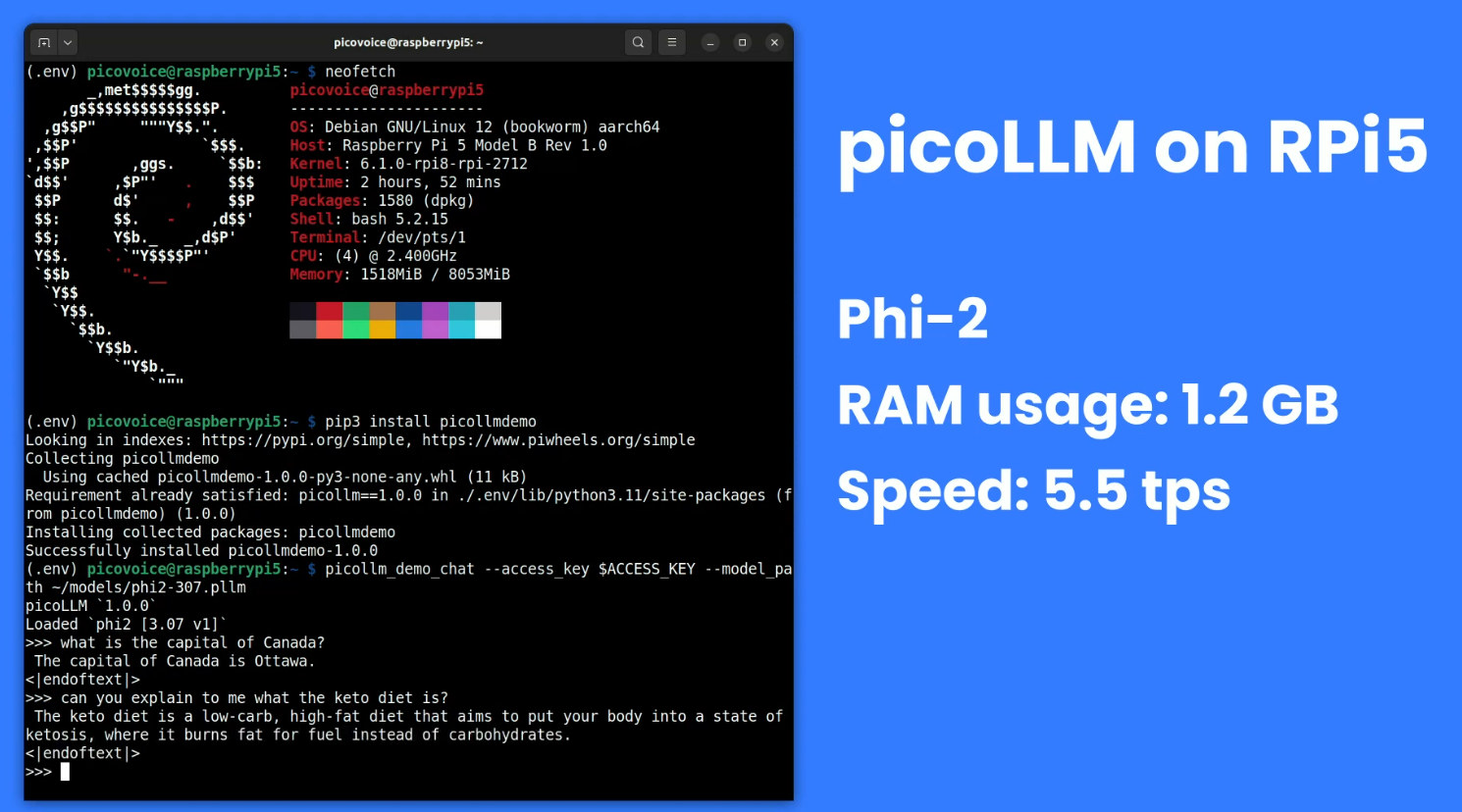Sipeed has recently released the MaixCAM-Pro AI camera devkit built around the SOPHGO SG2002 RISC-V (and Arm, and 8051) SoC which also features a 1 TOPS NPU for AI tasks. The module includes a 2.4-inch color touchscreen and supports up to a 5MP camera module. Other features include WiFi 6, BLE 5.4, optional Ethernet, built-in audio capabilities, a PMOD interface, GPIOs, and more. Additionally, it features an IMU, RTC chip, and AXP2101 power management for enhanced performance. The module is designed for AI vision, IoT, multimedia, and real-time processing applications. Just a few months back, Sipeed introduced the MaixCAM AI camera devkit, which is also built around the SOPHGO SG2002 RISC-V SoC. The new module improves on the MaixCAM with a redesigned PCB, upgraded casing, and various new features including a 2.4-inch IPS touchscreen (640×480), a 1W speaker, expanded IO interfaces, a power button, and an illumination LED. It also […]
NXP i.MX RT700 dual-core Cortex-M33 AI Crossover MCU includes eIQ Neutron NPU and DSPs
NXP has recently announced the release of NXP i.MX RT700 RT700 AI crossover MCU following the NXP i.MX RT600 series release in 2018 and the i.MX RT500 series introduction in 2021. The new i.MX RT700 Crossover MCU features two Cortex-M33 cores, a main core clocked at 325 MHz with a Tensilica HiFi 4 DSP and a secondary 250 MHz core with a low-power Tensilica HiFi 1 DSP for always-on sensing tasks. Additionally, it integrates a powerful eIQ Neutron NPU with an upgraded 7.5 MB of SRAM and a 2D GPU with a JPEG/PNG decoder. These features make this device suitable for applications including AR glasses, hearables, smartwatches, wristbands, and more. NXP i.MX RT700 specifications: Compute subsystems Main Compute Subsystem Cortex-M33 @ up to 325 MHz with Arm TrustZone, built-in Memory Protection Unit (MPU), a floating-point unit (FPU), a HiFi 4 DSP and supported by NVIC for interrupt handling and SWD […]
Google Pigweed SDK now supports Raspberry Pi RP2350 microcontroller
Google Pigweed, a collection of open-source libraries for embedded software development, now supports the Raspberry Pi RP2350 MCU and comes as a software development kit (Google Pigweed SDK). These libraries, also called modules, are building blocks that make embedded software development faster and more reliable. It targets tiny 32-bit microcontrollers such as STMicro STM32L452, Nordic Semi nRF52832, and the Raspberry Pi Pico line of microcontrollers. The library components have shipped in Google Pixels, Nest thermostats, robots, satellites, and drones. On August 8, the Pigweed project was released as a software development kit (SDK) in developer preview with official support for Raspberry Pi RP2350 and the associated Pico 2 development board. The new release uses the Bazel build system – a feature upstreamed into the Pico SDK by the Google Pigweed team – and a complete, open-source Clang/LLVM toolchain. The Google Pigweed SDK includes sample code, modules, and a comprehensive tutorial […]
T2-U WiFi and Bluetooth development board supports the Tuya Smart Home framework
The T2-U is a development board compatible with the Tuya Smart Home framework that features a WiFi and Bluetooth module with a 120 MHz RISC processor, some buttons, an LED indicator, GPIOs, power, and a USB-to-serial chip. In 2019, we covered Tuya as a one-stop Smart Home solution allowing companies to easily design and manufacture home automation devices from electronics to the enclosure. For example, the company provides a customizable 4-inch Android touch control panel & Zigbee gateway as well as the Tuya Link SDK allowing customers to further customize the firmware of their Smart Home devices, but I had yet to see a development board compatible with Tuya. T2-U development board specifications: Wireless module – T2-U SoC – Unnamed 32-bit RISC MCU @ 120 MHz with 2 MB flash and 256 KB RAM Wireless Wi-Fi 802.11b, 802.11g, and 802.11n wireless standard. Channels 1 to 14 at 2.4 GHz. Security […]
Radxa Fogwise Airbox AI box review – Part 2: Llama3, Stable Diffusion, imgSearch, Python SDK, YOLOv8
After checking out Radxa Fogwise Airbox hardware in the first part of the review last month, I’ve now had time to test the SOPHGO SG2300x-powered AI box with an Ubuntu 20.04 Server image preloaded with CasaOS as well as Stable Diffusion and Llama3 containers. I’ll start the second part of the review by checking out the pre-installed Stable Diffusion text-to-image generator and Llama3 AI chatbot, then manually install imgSearch AI-powered image search engine in CasaOS web dashboard, test the Python SDK in the command line, and run some AI vision models, namely Resnet50 and YOLOv8. Radxa Fogwise Airbox OS installation Radxa only provided an Ubuntu Server 20.04 image last month with only the basics pre-installated. The company has now improved the documentation and also made two images available for the Radxa Fogwise Airbox: Base image (1.2GB) – Based on Ubuntu Server 20.04; contains only Sophon base SDK and backend. Full […]
ESWIN EIC7700X quad-core RISC-V SoC embeds 19.95 TOPS NPU for Edge AI vision applications
Yesterday we noted Sipeed was working on the LM5A system-on-module powered by ESWIN EIC7700X quad-core RISC-V processor with a ~20 TOPS AI accelerator in order to integrate it into its Lichee Book laptop and other carrier boards. So today, I’ve decided to look into the EIC7700X SoC designed by “BEIJING ESWIN COMPUTING TECHNOLOGY CO., LTD”, or ESWIN for shorts. The EIC770X features four 64-bit RISC-V (RV64GC) cores clocked up to 1.8 GHz, unnamed 3D and 2D GPUs, a 19.95 TOPS NPU, H.265/H.264 video encoder/decoder capable of handling up to 32x 1080p30 videos, various video output (HDMI + DSI) and input interfaces, dual GbE, 4-lane PCIe Gen 3, and more. ESWIN EIC7700X specifications: CPU 4x SiFive Performance P550 RV64GC RISC-V cores @ 1.4GHz (up to 1.8GHz) with Cortex-A75-class performance 32KB(I) + 32KB(D) L1 Cache 256KB L2 Cache 4MB shared L3 Cache Cache supports ECC (support SECDED) DNN Accelerator – 19.95 […]
Cavli C17QS Cat 1.bis cellular IoT and GNSS module offers more memory, global support, a new FreeRTOS SDK
Cavli Wireless C17QS is a Cat 1.bis cellular IoT and GNSS module that builds up on the Qualcomm QCX216-powered C16QS Cat 1.bis Cellular IoT module introduced last year, with more memory (2MB RAM) and storage (8MB flash), a wider range of LTE bands, multi-band (L1 and L5) GNSS, and a new FreeRTOS SDK for more flexibility compared to the C16QS. The Cavli C17QS Cat 1bis module is designed around a Qualcomm QCX217 Arm Cortex-M3 microcontroller clocked at up to 306MHz clock speed and running FreeRTOS real-time operating system. The module features a range of interfaces including UART, USB 2.0, USIM, SWD, ADCs, I2S, I2C, SPI, and GPIO pins. The new module is pin-to-pin compatible with the C16QS module for easier design upgrades. Cavli C17QS specifications: Wireless IC – Qualcomm QCX217 Arm Cortex-M3 @ 306 MHz, cellular modem-RF Memory – 2MB RAM Storage – 8 MB flash Cellular connectivity LTE CAT […]
picoLLM is a cross-platform, on-device LLM inference engine
Large Language Models (LLMs) can run locally on mini PCs or single board computers like the Raspberry Pi 5 but with limited performance due to high memory usage and bandwidth requirements. That’s why Picovoice has developed the picoLLM Inference Engine cross-platform SDK optimized for running compressed large language models on systems running Linux (x86_64), macOS (arm64, x86_64), and Windows (x86_64), Raspberry Pi OS on Pi 5 and 4, Android and iOS mobile operating systems, as well as web browsers such as Chrome, Safari, Edge, and Firefox. Alireza Kenarsari, Picovoice CEO, told CNX Software that “picoLLM is a joint effort of Picovoice deep learning researchers who developed the X-bit quantization algorithm and engineers who built the cross-platform LLM inference engine to bring any LLM to any device and control back to enterprises”. The company says picoLLM delivers better accuracy than GPTQ when using Llama-3.8B MMLU (Massive Multitask Language Understanding) as a […]


